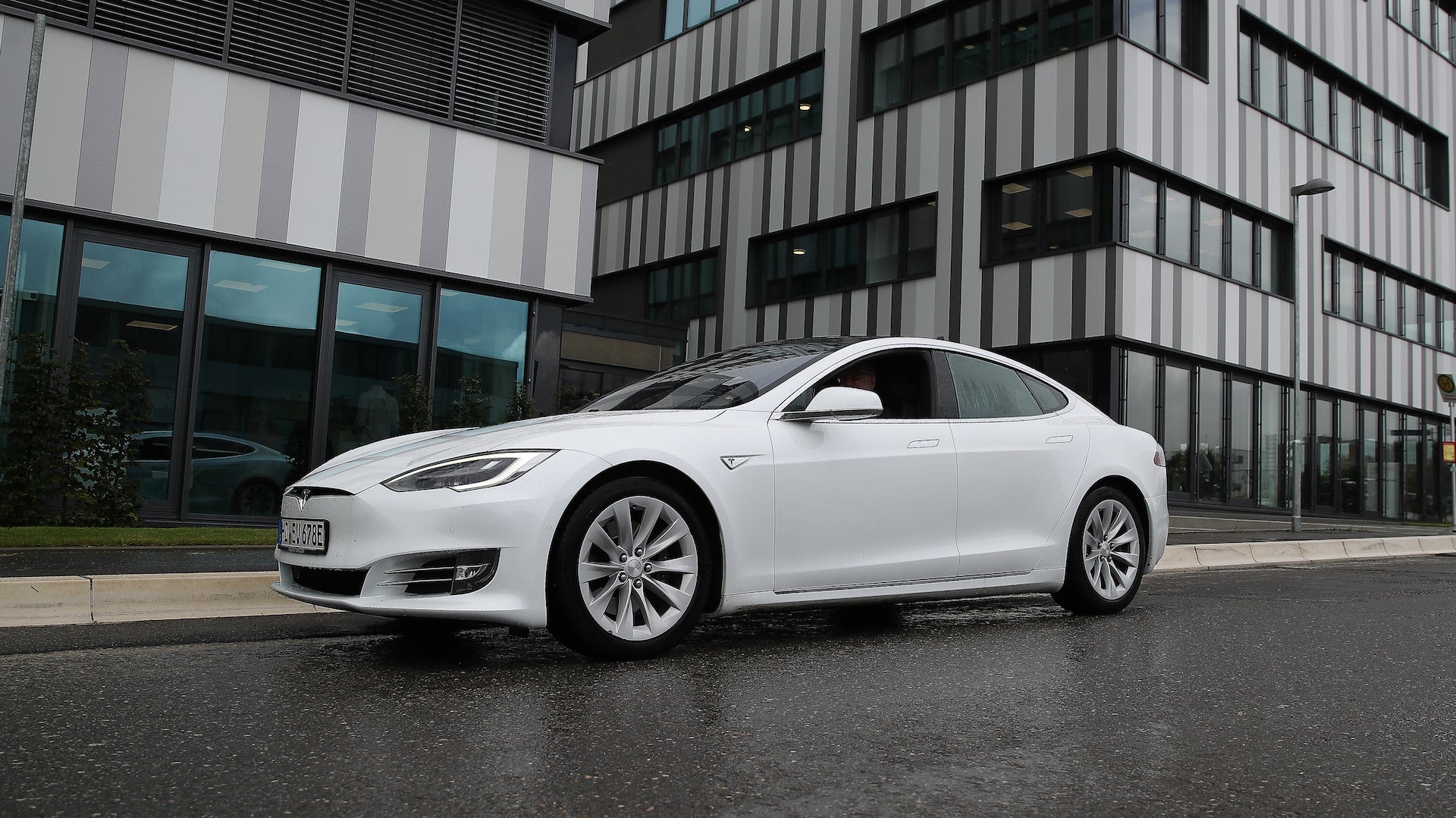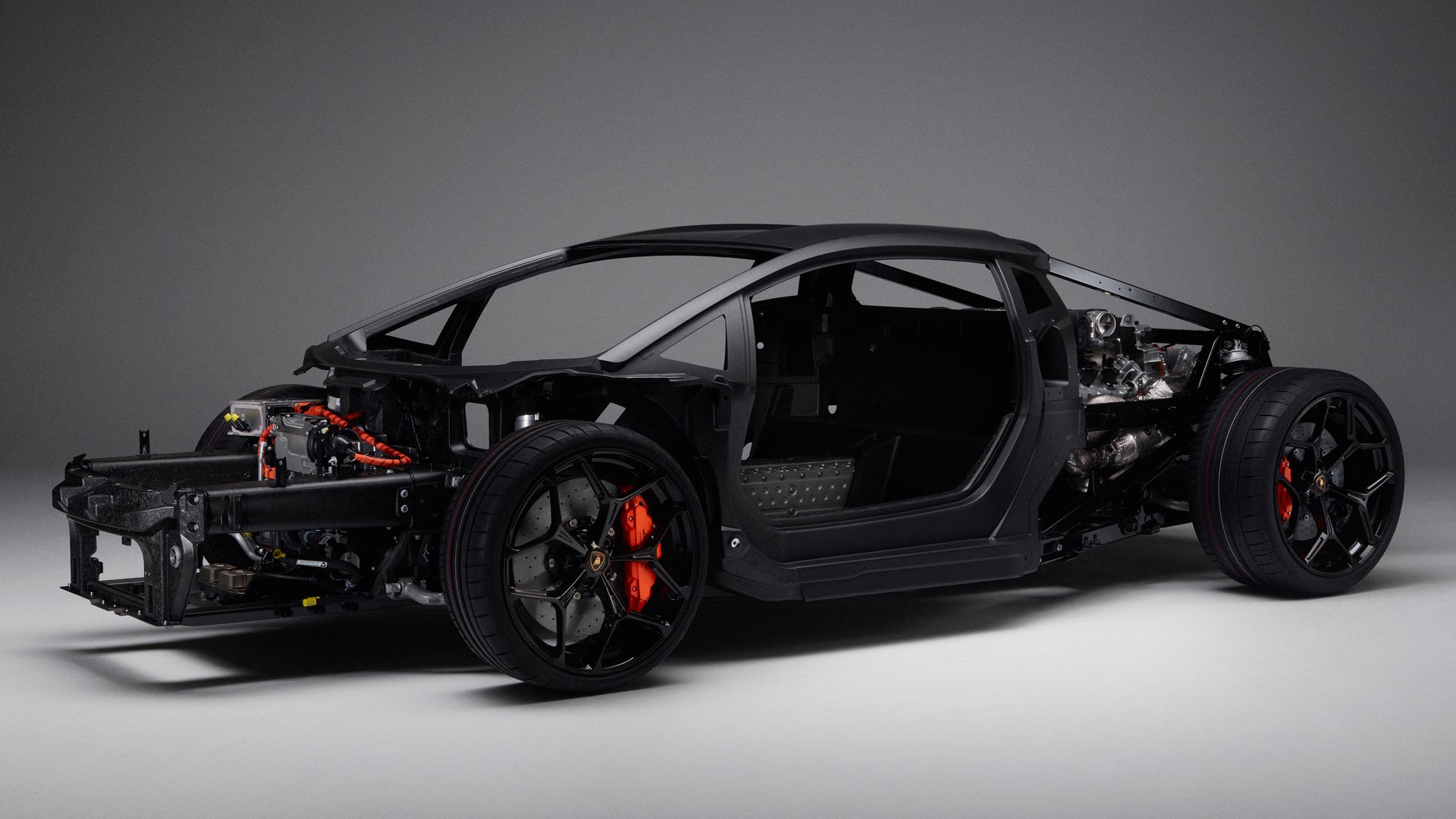You might not notice it every time you get behind the wheel, but driving a car is an extremely sensory experience. Dynamics aside, sound is what makes driving a Nissan Sentra much different than a Ferrari F8. And when one of your senses is left unstimulated when behind the wheel, something just feels...odd.
The lack of an engine sound in an EV can be a huge letdown, and it's part of the reason why many enthusiasts describe battery-powered vehicles as "soulless." For this very same reason, there's now a company that can put a little bit of rumble back into driving an electric car.
Meet EngineVox, the startup company that figured out how to add some rather unique engine and exhaust sounds to otherwise near-silent vehicles. Using a proprietary system, the company is able to pump out convincing exhaust notes that surely command second takes.
Let's just get this out there: yes, these are fake engine noises. There's no dancing around this one.
We asked EngineVox for some details about what kind of hardware is used to mimic the sound and how it achieves realistic responses with throttle input, but we didn't receive a response. Thankfully one of its earliest videos helps shed some light on at least part of this mystery.
The system uses external speakers to pump sound outside of the vehicle—often in the rear bumper—and uses information read from the car's OBD II port to determine engine rpm and throttle input. And as you might have already guessed, this means that you can also use its tech on gas-powered cars as well.
All of this fake goodness thrown into a vehicle-specific package translates into cool acceleration sounds, burbles, and even faux-shifting on EVs.
EngineVox doesn't list particular vehicles that it sources sounds from on its website but does list eight possible high-end choices customers can choose from—all of them with eight cylinders. For example, a 4.0- or 5.5-liter German V8, a 4.0- or 4.7-liter Italian engine, or even 4.7, 5.7, and 6.2 liters of American muscle.
On social media, the company's claimed that it's recorded sounds from an Audi RS6, C7 Corvette, Dodge Challenger, 1967 Ford Mustang, Lamborghini Urus, Maserati GranTurismo, Mercedes-AMG G63, Porsche 911 GT3 RS, and Range Rover Sport. EngineVox says that it also recorded the sounds produced by the Lamborghini Huracan Evo's V10 engine.
The system isn't cheap, as you can see on the company's website. Pricing ranges from right around $1,700 all the way to $5,000, which is admittedly expensive for a novelty. Between this and the $2,000 Tesla-supplied Acceleration Boost upgrade, I think I know where I would spend my money.
The system showed up on Reddit's /r/cars earlier this month and didn't exactly get a warm reception. It turns out that a lot of people don't like fake engine noises—who would've thought? EngineVox says that "opinions differ," and says that its exhaust systems give buyers the chance to form their own opinions about the car's engine sounds.
I actually liked the Ford Mach-E's toggleable propulsion sounds when I drove one earlier this year. Granted, that sound was inside of the car, and I also knew that it wasn't trying to mimic the exact sound of a Mustang V8 either. As long as you understand that those sci-fi burbles are more of a fun way to fill the engine-shaped hole in your accelerator pedal, it becomes a fun little quirk.
With the direction that the internal combustion engine is headed, EngineVox's system might be the closest thing to exhaust notes we have in the future. And let's be honest—as an enthusiast, would you rather hear these faux engine noises or the sounds produced by Amazon's new electric Rivian vans?
Got a tip or question for the author? Contact them directly: [email protected]









